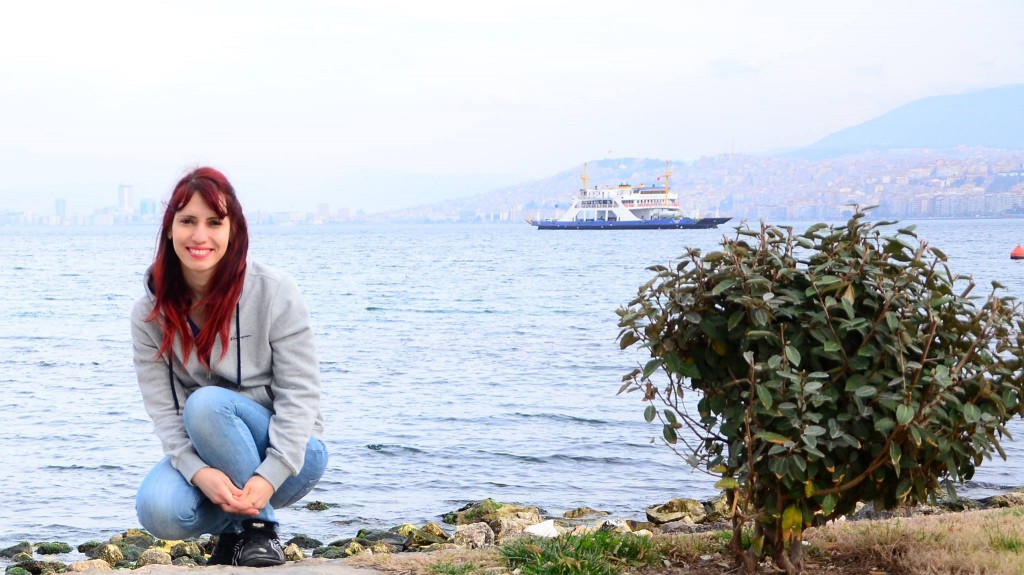Turkish Research Delight

(March 6th, 2015) As one of the few lucky winners of an EMBO Installation Grant, Günes Özhan is ready to push biomedical science in Turkey. Fortunately, a new research centre, the Izmir Biomedicine and Genome Center (iBG-izmir) has recently been founded in the western part of the country.
In December 2014, the European Molecular Biology Organization (EMBO) awarded Installation Grants to eight young researchers. The grants are designed as research support for ambitious scientists in countries like Czech Republic, Poland, Portugal and Turkey.
One of the young investigators awarded such a high-priced grant is Günes Özhan, now at the Izmir Biomedicine and Genome Center, Dokuz Eylul University, Izmir, Turkey. Günes began her scientific career graduating from the Middle East Technical University in Ankara, Turkey, in 2003. She then went to Germany for her MSc and PhD in Molecular and Developmental Biology at the Max Planck Research School in Göttingen. Between 2009 and 2013, she worked as a postdoctoral fellow at the Biotechnology Center and Center for Regenerative Therapies at TU Dresden, Germany. From there, she returned to her home country last year. What was her motivation to go back?
“During my PhD and postdoc periods, I had the opportunity to get substantial academic training and I published many papers. I started to think that it was the right time to go back to Turkey. Turkey has changed a lot in terms of Research & Development investments; we now have more chance to get our research projects funded, and better opportunities in choosing what we want to investigate. I moved to Izmir, Turkey, in January 2014 and since then have been working as a junior group leader at the Izmir Biomedicine and Genome Center (iBG-izmir) at Dokuz Eylul University. I will enter the network of EMBO Young Investigators, which offers extensive networking opportunities as well as practical support from EMBO YIP member labs and EMBL core facilities and greatly helps integrate into the European scientific community,” says Günes. Currently, she studies the Wnt/ß-catenin signalling pathway during embryonic development and organ regeneration. With deep-sequencing-based gene expression profiling of zebrafish embryos, she wants to find new modulators that can regulate the pathway and exploit them for drug discovery.
When asked why she has chosen a career in the life sciences, Günes says that it “just happened”. For her, science is not an ordinary job but a lifestyle. “It keeps me constantly stimulated and excited. Besides, it is mentally and physically challenging. For a scientist, the most enticing part of the job is to get the truth directly from nature. You can be the first one to reveal something hidden deep in nature, isn’t that cool? Life sciences are even more fascinating; full of mystery and with literally an infinite number of unanswered questions.”
The newly founded iBG-izmir Center is proof that Turkey is increasingly investing in research. Originally, the iBG-izmir project was created in 2003 as a partnership of Dokuz Eylul University Health Campus, Faculty of Medicine & University Hospital and the Health Technology Park. The Turkish government provided $58 million to complete a national biomedical research centre on the health campus. In September 2014, the national research centre became an international research centre of excellence.
“iBG-izmir is the rising star of Turkey and, when it has reached its full capacity, will accommodate approximately 400 scientists. The centre’s mission is to discover and advance knowledge for the benefit and well-being of society, public health and economic prosperity. It will be the first regional hub, located in Izmir, Turkey’s third largest city, and a critical locomotive for the growing Turkish economy, particularly within the health sector,” Günes says. The centre follows a multidisciplinary approach, uniting molecular biology with genetics, medicine, pharmaceutical sciences, bioengineering, computer engineering and many more. “With this scope, iBG-izmir matches perfectly my professional aims and I believe it will soon be a highly competitive and top-notch biomedical research centre in Turkey.”
Nadejda Capatina

